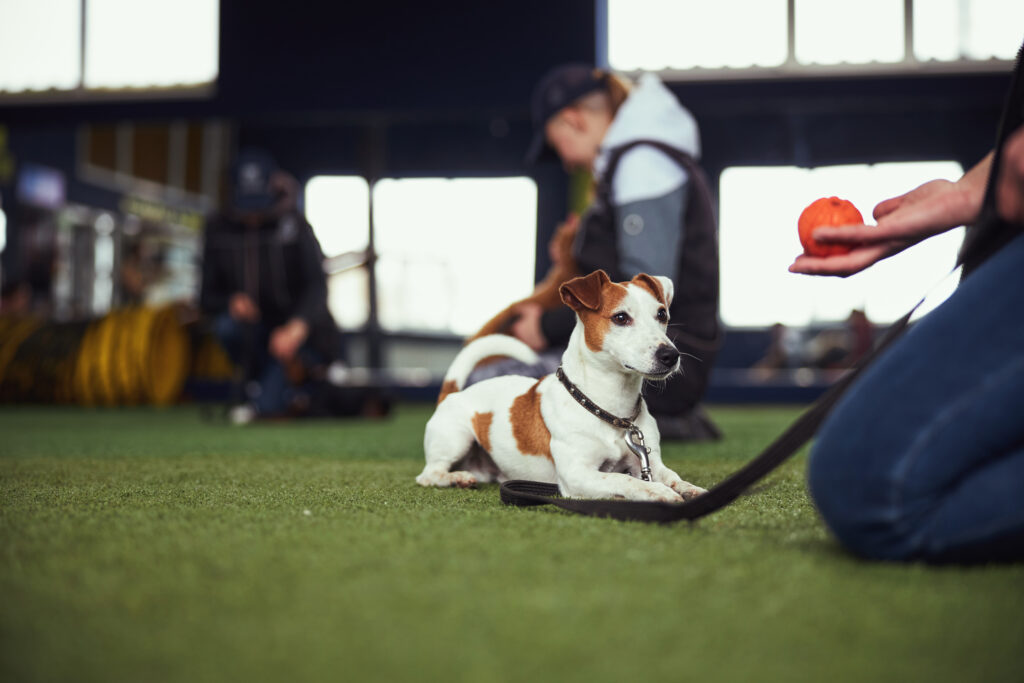When talking to a puppy, it’s crucial to use language that fosters positive interactions and clear communication.
Here are some phrases to avoid…
“No!” or “Bad Dog!”
- Why to Avoid – Negative commands can confuse or scare a puppy. They don’t understand the context and may associate “No” with fear, rather than understanding what behavior was wrong.
- Instead – Use positive reinforcement like “Good boy/girl!” and redirect their behavior to something positive.
“Stop That!”
- Why to Avoid – This is vague and doesn’t tell the puppy what exactly they’re doing wrong. Puppies need clear instructions.
- Instead – Be specific, like “Leave it” or “No biting,” followed by praise when they stop.
“What’s Wrong With You?”
- Why to Avoid – This phrase can be confusing and discouraging. It implies the puppy is doing something wrong without offering guidance.
- Instead – Focus on corrective commands, like “Sit” or “Down,” to guide their behavior.
“You’re Not Listening!”
- Why to Avoid – Puppies are still learning and may not yet understand everything you’re saying. This can make them feel frustrated or misunderstood.
- Instead – Use a calm, firm voice to repeat commands and reinforce training with rewards.
“It’s Okay” (When It’s Not)
- Why to Avoid – If your puppy is acting inappropriately (e.g., chewing on something dangerous), saying “It’s okay” can send mixed signals about what’s allowed.
- Instead – Correct the behavior with a firm command and then redirect them to something acceptable.
“Don’t Do That” (Without Action)
- Why to Avoid – This is too vague and doesn’t provide any direction. Puppies need to know what to do, not just what not to do.
- Instead – Give a clear direction like “Sit” or “Come,” followed by praise when they comply.
“You’re a Bad Puppy!”
- Why to Avoid – This phrase can negatively affect the puppy’s confidence and create anxiety. Puppies need positive, motivating words.
- Instead – Focus on rewarding good behavior and calmly correcting unwanted actions.
Avoid using negative, vague, or discouraging phrases with your puppy. Instead, focus on clear, positive communication, using specific commands and praise to guide their behavior. This builds trust and understanding while promoting good habits.


